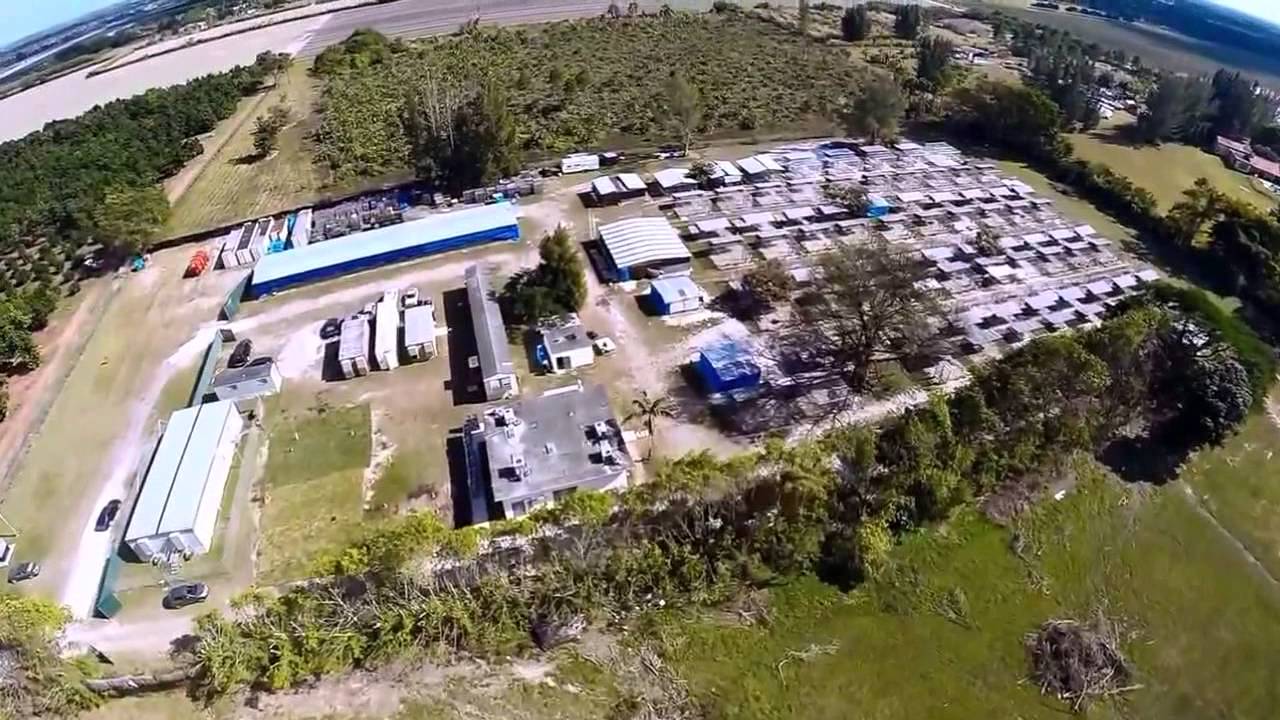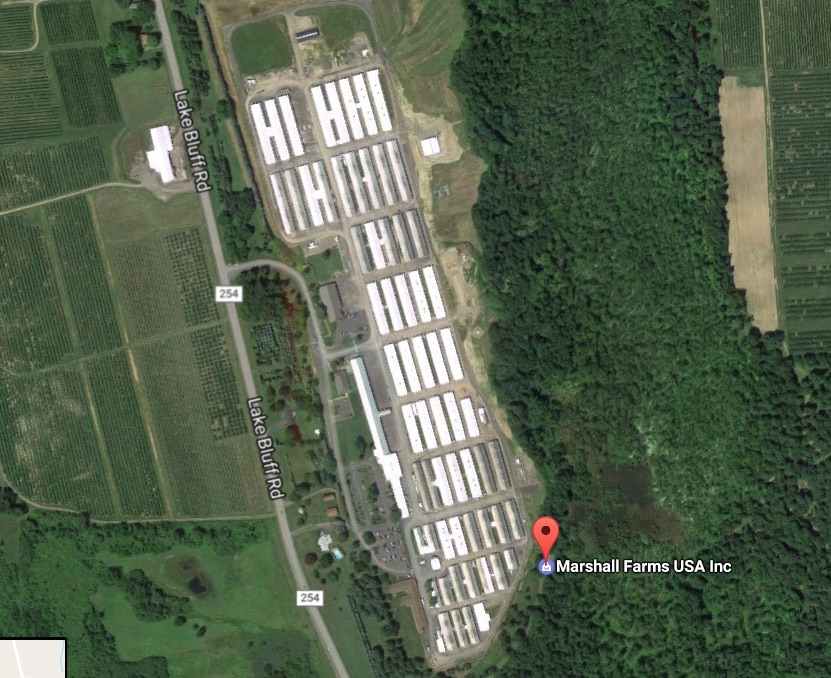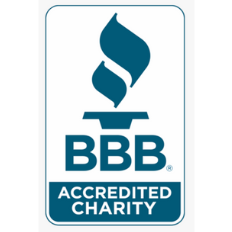LCA EXPOSES CRUEL TREATMENT OF ANIMALS AT ITR RESEARCH LABORATORIES CANADA
This footage of ITR’s inexcusable behavior is further evidence of the laboratory’s grave mistreatment of their animals. In spite of the documented abuse, ITR remains a U.S. Food and Drug Administration and U.S. Department of Defense approved facility. The National Institute of Health (NIH)—an agency funded by U.S. tax dollars—has provided grants for numerous cruel animal tests conducted at ITR. The NIH is notorious for funding research institutions with substandard animal welfare records, and will continue to do so until enough people demand that they stop.
In addition to U.S. agencies knowingly perpetuating animal cruelty, the Canadian government continues to fail the country’s animals by not conducting investigations into the treatment of animals in laboratories. Instead, Canada uses a non-governmental organization called the Canadian Council on Animal Care (CCAC) to regulate the treatment of animals in research. Despite evidence of flagrant cruelty that has been presented to the CCAC, it has failed to take any action. In fact, the CCAC has never revoked any animal research facility’s certification, regardless of documented mistreatment and abuse. Furthermore, the CCAC relies on funding from the very institutions it monitors, essentially making animal research in Canada a self-regulating industry. Canada’s failure to properly supervise these facilities allows thousands of animals to legally suffer in laboratories across the country.
JUNE 14, 2023 - CANADA PASSES LEGISLATION AIMING TO PHASE OUT TOXICITY TESTING ON ANIMALS
Canada passed amendments to Bill S-5, the Strengthening Environmental Protection for a Healthier Canada. Included in the Bill were provisions aiming to phase out toxicology testing on animals. The Canadian Government has two years to develop a plan on how to implement the changes. ITR is the first undercover investigation released by an animal rights group of a research facility in Canada and is one of the catalysts of reform to animal testing laws in Canada.
SEPTEMBER 2017 - ZONING BY-LAW BANS NEW ANIMAL RESEARCH FACILITIES FROM OPENING IN BAIE D'URFE AFTER LCA'S ITR INVESTIGATION
PREVIOUSLY UNRELEASED ITR FOOTAGE
ITR UNDERCOVER INVESTIGATION DETAILS
During summer and fall of 2016, LCA conducted an investigation at ITR Canada Ltd., a contract toxicology research facility in the suburbs of Montreal, Quebec that performs laboratory studies on beagle dogs, mini-pigs, and macaque monkeys. Throughout the investigation, LCA documented an ongoing pattern of animal abuse and neglect in clear violation of provincial animal protection laws and animal testing guidelines.
LCA’S ITR INVESTIGATION REVEALED:
-
Animals thrown, slammed, suspended by their ears or limbs, and struck with such force that the impact can be heard on the investigator’s recording;
-
Open wounds and swollen infections left untreated or inadequately treated;
-
Animals subjected to painful and distressing procedures in full view of other animals;
-
Beagles and macaques denied any chance of socialization with humans or other animals, and further denied any opportunity to exercise, in some instances for the duration of a nine-month study (at the end of which the animals were killed);
-
Macaques denied access to sufficient drinking water;
-
Technicians instructed not to take note of hair loss in macaques, despite the hair loss resulting from repetitive behaviors developed through the stress of confinement, and despite guidelines requiring that behavioral well-being indicators be measured;
-
Inadequate housing where animals were confined without appropriate bedding or a dry, flat area to rest; where animals were exposed to constant loud noises and harmful levels of gasses due to the build-up of urine and feces behind their cages; and where animals risked being caught in the cages’ wire grilling;
-
Beagles unable to ever fully turn around because they were constantly tethered with a catheter inserted between their shoulder blades;
-
An anecdotal instance of a macaque left unsupervised while restrained in an inhalation device and subsequently suffocating to death.
READ ABOUT ITR'S ANIMAL WELFARE VIOLATIONS
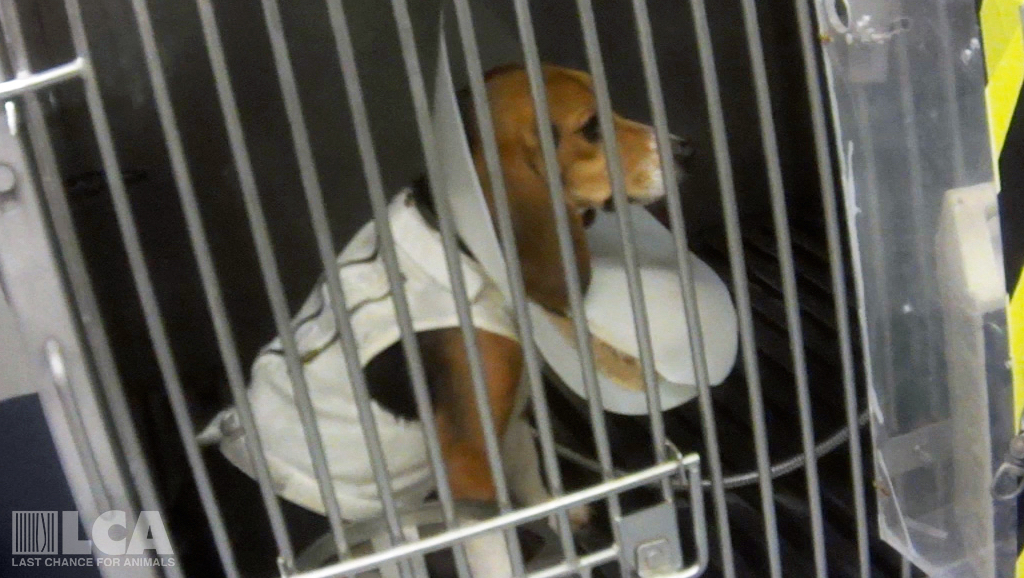
The boldness with which many of the instances of abuse took place––often in full view of supervisors and, in the case of beagles in an inhalation study, in a room with a surveillance camera––suggests that technicians were confident they would not be reprimanded for their behavior. ITR supervisors made no moves to prevent further abuse or to correct systematic neglect of the animals.
Possibly the most intrinsic abuse with lab animals occurs merely in the way they are housed for most of their lives. Animals in all of the studies documented by LCA were housed singly in barren wire cages, without opportunities for exercise or socialization. This social deprivation was exacerbated by the animals’ ability to see distressful procedures carried out on the others in the room.
Dogs, macaques, and pigs are all social animals, and depriving them of the chance to interact with humans or with members of their species, especially when none of the tests LCA witnessed called for the animals to be isolated for extended periods of time, is inexcusable
Macaques are highly social animals and live in extended family groups in the wild. Their suffering from isolation and use in painful experiments has been documented to show that 10-14% of individually housed monkeys mutilate themselves.
All the animals documented by LCA’s investigator were killed at the end of the studies they were used in, except the macaques. This species is commonly subjected to multiple studies over the course of their lives, which can be as long as thirty years.
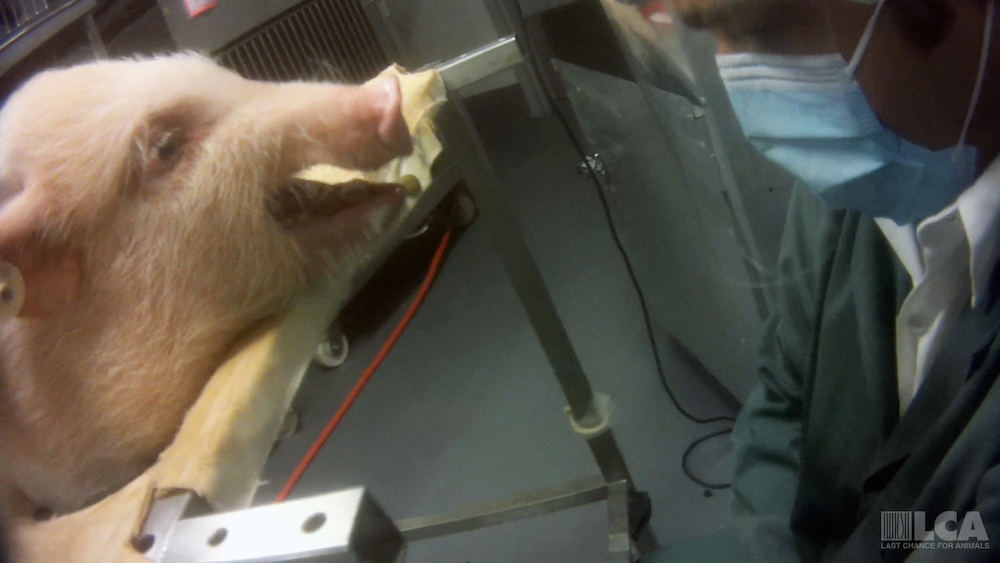
Researchers are required to justify their use of animals in medical studies, with the goal of minimizing animal suffering. However, during our investigation, LCA documented a shocking violation of this principle. In one instance, a dermal study designed to test a gel or ingredient intended to be applied topically to human skin involved rubbing a substance on the skin of mini pigs to test how the pigs’ skin would react. When it became apparent that the substance was causing a severe degree of burning and irritation to the animals, technicians asked for the study to be stopped and the veterinarian and management agreed. However, the study sponsor was unwilling to stop the tests and instead instructed management to change the parameters of the study and to force feed the substance to the pigs. Multiple animals were put through the distress of having a tube forced down their throats, and a foreign substance injected into their stomachs for a study that could not possibly produce any relevant or usable results. The disturbing callousness of ITR management in allowing this treatment to occur violates the most basic ethical standards to which medical researchers are expected and required to adhere.
LCA has filed official complaints with Le ministère de l'Agriculture, des Pêcheries et de l'Alimentation (MAPAQ), Le ministère des Forêts, de la Faune et des Parcs (MFFP), Ministère de l'Énergie et des Ressources naturelles (MERN). These ministries are responsible for enforcing violations of The Animal Welfare and Safety Act (CQLR c. B-3.1), The Regulation Respecting the Safety and Welfare of Cats and Dogs (CQLR P-42, r.10.1), The Act Respecting the Conservation and Development of Wildlife (CQLR c. C-61.1) and The Regulations Respecting Wildlife in Captivity (CQLR C-61.1, r. 5).
Provincial animal welfare laws do not exempt lab animals from provisions protecting animals from neglect and the types of abuse witnessed by our investigator. The treatment documented at ITR shows a blatant disregard for the well-being of the animals in the care of the facility, and we are calling for charges to be laid against ITR’s management.
EXPERT STATEMENTS:
Margaret Whittaker, Animal Behavior Consultant, Behavioral Advisor to the Old World Monkey Advisory Group of the AZA:
“After viewing this video, it is my professional assessment that the monkey wearing the red collar is of extreme concern; her situation must be addressed to alleviate her suffering. I also believe that many of the other monkeys are at risk of developing behavioral pathologies and suffering from the techniques used at this facility. I believe that significant changes must be made by this facility in order to protect the animals’ physical and psychological well-being.”
Dr. Jessica Ganas:
“As highly social animals that live in large multi-male/multi-female groups in the wild, housing animals in a lab in the conditions listed above is inherently cruel. The effects of these conditions have caused the animals to exhibit abnormal behavior such as stereotypes, and extreme body hair removal. No social animal should be subjected to such living conditions. Psychological and social behavior indicated monkeys suffering.” -
Dr. Ganas has over twenty years experience working with primates in both a lab and wild setting. She received her PhD from the Max Planck Institute for Evolutionary Anthropology where she studied wild mountain gorillas in Uganda for her dissertation. Additionally, she has worked at three different captive and semi-wild primate research centers in the United States, primarily studying the social behavior of rhesus macaque monkeys.
In recent decades, scientific advancements have made many medical tests involving animals obsolete. All stakeholders should be working tirelessly to move away from using animals wherever alternatives exist; many tests commonly performed on animals can already be replaced. The scientific community has a moral obligation to end its reliance on animal models when more effective, efficient, and ethical methods of testing exist.
SIGN THE PETITION CALLING FOR THE PROSECUTION OF ITR AND ALL INDIVIDUALS RESPONSIBLE FOR THIS CRUELTY
FRENCH TRANSLATION OF INVESTIGATION HERE
WHERE ITR GETS ITS ANIMALS
ITR obtains the beagles and mini pigs used in its gruesome experiments from Marshall Farms, one of the largest breeders in the world of these species and others used in animal testing. Marshall breeds animals for one reason: to sell them to labs for painful and deadly medical experiments. Marshall operates in the U.S., Europe and Asia.
Marshall is notorious for its long and sordid history of animal cruelty. In the past five years alone, they’ve racked up more than 20 citations for violating U.S. animal welfare regulations. Their filthy buildings were found to be infested with mice and flies, while the animals within were confined to tiny wire cages and denied proper veterinary care. The dogs were kept in cages so cramped, they could not even lie down or turn around.
Worldwide Primates in Miami, Florida supplies ITR’s macaques and is known for the pain and suffering inflicted on its primate victims. Owner Matthew Block was sentenced to 13 months in prison in 1993 for his part in the KGB-linked attempted smuggling of the “Bangkok Six” orangutans from Singapore to Moscow. Four of the orangutans died from the ordeal.
|
|
|
Mena Suvari Speaks Out Against Animal Cruelty at ITR from Last Chance for Animals
LCA'S ITR UNDERCOVER INVESTIGATION IN THE NEWS
HOW YOU CAN HELP
-
The National Institute of Health (NIH) uses American tax dollars to fund horrific animal tests worldwide. Contact the NIH here and urge them to remove ITR from the list of Foreign Institutions with a PHS Approved Animal Welfare Assurance so that your tax dollars will no longer be used to fund cruel tests at ITR.
-
Both the U.S. and Canadian federal governments have introduced bills to ban the use of animals in cosmetic testing. U.S residents, find your representative here and urge them to support the Humane Cosmetics Act. Canadian residents, find your representative here and urge them to support the Cruelty Free Cosmetics Act.
-
Everyone, please contact Canada’s Prime Minister Justin Trudeau here, and Canada’s Minister of Justice Jody Wilson-Raybould here and urge them to implement regulations that will protect animals in laboratories, like the ones at ITR. Let them know the Canadian government’s failure to regulate the treatment of animals used in research is unacceptable.
READ ABOUT LCA'S MARINELAND CANADA INVESTIGATION


